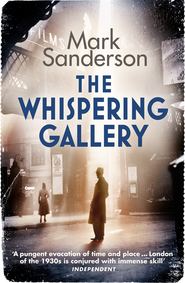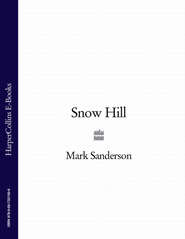По всем вопросам обращайтесь на: info@litportal.ru
(©) 2003-2025.
✖
Robin Hood Yard
Автор
Год написания книги
2018
Настройки чтения
Размер шрифта
Высота строк
Поля
“He dined here with Sam Weller,” said Johnny.
“I don’t have time to read for pleasure.”
“But you do read the papers.”
“Lord Beaverbrook, Viscount Rothermere and their cronies are powerful men. It’s not called the press for nothing. If they want something, they can exert great pressure.”
“Even they can’t stop a world war though. They’re more concerned about their livelihoods – the supply of newsprint – than the lives of their readers.”
“Agreed,” said Adler. He sipped the fine claret. “There’ll be no shortage of news though.”
“There will. Dora will see to it.” The Defence of the Realm Act was introduced in 1914. “The government is bound to tighten its grip on the flow of information.”
“The Nazis are fond of censorship as well,” said Adler. “The problems facing Jews in Germany are far worse than leaks suggest. They’re now being rounded up and expelled to Poland. Not only men of working age but women and children too.”
Johnny had long campaigned for the Daily News to highlight Hitler’s atrocious treatment of the Jews. However, he was a crime reporter. Foreign news was not his concern. Patsel dismissed such reports as gross exaggeration, propaganda spread by embittered refugees.
Fleet Street preferred to reflect public opinion rather than change it. Britannia ruled the waves but her citizens were insular in outlook. There was enough suffering at home without worrying about Johnny Foreigner. Only last week the Daily Telegraph had run an advertisement for typists with the proviso that “no Jewesses” need apply.
“Why d’you think Hitler hates Jews so much?”
“Fear. Paranoia. Perhaps he’s secretly afraid there’s a tincture of Jewish blood running in his veins. Self-hatred is even more corrosive.” He sighed. “It’s easier to blame other people for your own weaknesses, shift the responsibility away from yourself. Conspiracies are convenient ways of explaining the inexplicable. Otherness – difference – produces a primitive, instinctive reaction in the brain, but most people choose to override it.”
“A tribal survival mechanism.”
“Exactly. If there weren’t any Jews, new scapegoats would soon be found. Negroes, Catholics, Armenians, homosexuals …”
“And yet Jews invented the concept.”
“That’s right.” Adler raised his glass to him. “Which university did you attend?”
“I didn’t. Couldn’t afford it.”
“Ah, well it stems from the Hebrew word Azazel. You can find it in Leviticus: And Aaron shall place lots upon the two he-goats: one lot for the Lord, and the other lot for Azazel.”
“So why would someone select you as a scapegoat?”
“I don’t know. Perhaps the attack has nothing to do with my being Jewish.”
“It must have. It’s Saturday – the Jewish Sabbath. The blood must be a reference to historic blood libels.”
“But I haven’t crucified any Christian kids or drunk their blood. I haven’t poisoned any wells.”
Suddenly the expensive Bordeaux didn’t taste as good.
“No, but you’re about to become the figurehead of the financial centre of the world. Many people see bankers as bloodsuckers. In their blinkered eyes, the fact you’re Jewish simply makes matters worse.”
“I’m not a practising Jew though. As you see, I don’t observe the Sabbath. I don’t have ringlets. I don’t dress entirely in black. I don’t work for a Jewish bank. You could say I’m totally unorthodox.”
“Why did you want to be Lord Mayor?”
“What financier wouldn’t? It’s an honour. Proof I’ve assimilated myself into a secretly hostile environment. Chairmanships and presidencies are all very well, but the mayoralty is a unique position. It’s a chance to do an immense amount of good – for both the companies and charities I’m involved with. And, of course, I’ll be able to help my friends …”
He topped up Johnny’s glass.
“What d’you want me to do?”
“Find out who’s behind this campaign. I don’t have much faith in the police. Ironic, isn’t it, that the top brass are based in Old Jewry? Did you know the Great Synagogue there was burned down before Edward I expelled the Jews …”
When Johnny, somewhat squiffy, re-emerged into daylight, the working week was over. The army of bank messengers, dispatch cases chained to their wrists, had marched off home, leaving the streets to the City’s “submerged tenth”: watchmen, sandwich-men, hawkers, beggars and bible-bangers. The lamps slung on wires above them swung in the strengthening wind. Plane trees shed their last few leaves.
Johnny hadn’t finished work though. He decided to walk back to the office to clear his head.
He preferred being on foot – relying on his own resources – to being driven by someone else. London was a never-ending variety show, every pedestrian a character in an impromptu promenade performance. It was impossible not to cheer.
Even so, as he strode down Ludgate Hill, St Paul’s standing proud behind him, his spirits sank. He’d two meaty stories to pursue, but what was the point if the country was waltzing towards war? His flat feet would keep him out of the army yet he was determined to make himself useful. Perhaps Adler could recommend him to the Ministry of Information when it was finally re-established.
He’d read too much to harbour any illusions about the reality of war. Chamberlain had declared there must be “no more Passchendaeles” – Johnny’s father had been killed in the battle in 1917 – but, for all his good intentions, he was a politician not a magician. Peace couldn’t be produced, like a rabbit, out of a hat. Before long, ignorant armies would once again clash by night. If Johnny couldn’t report on it he could at least help pick up the pieces: carry a stretcher or drive an ambulance. Matt, Lizzie and Lila Mae were the only family he had. It wouldn’t matter if he were blown to bits.
What bollocks! He shook his head to dispel the gloom. Evil had to be confronted wherever it lurked. He nodded to the commissionaire and headed for the lifts, noticing in passing that the sunburst ceiling, dazzlingly lit, made the doorman’s shoes shine.
A pall of silver cigarette smoke drifted over the stalls. Johnny, sprawled on the front row, smirked at the portrayal of hard-drinking, hard-talking newspapermen in I Cover the Waterfront. He could see why the American tale of people-trafficking had taken five years to reach these shores.
The ABC in Islington High Street had been the Empire until a few months ago. Movies had replaced music-hall turns in 1932. When he was a child his mother had often treated him to a Saturday afternoon show. In those days the Victorian concert venue had been known as The Grand. The more things changed the more they remained the same.
There was no food at home so he’d hopped off the tram at the Angel and bought a couple of stale rolls – at a discount – from the French & Vienna Bread Co. next door and smuggled them into the picture house.
If he was with a girl he usually steered her to the back row where, inevitably, the film took second place to smooching. However, when alone, he liked to be as close to the screen as possible so that the characters were literally larger than life.
Claudette Colbert, especially in the brothel sequence, was captivating – although he preferred her darting eyes in It Happened One Night – but Ernest Torrence’s evil sea-captain stole every scene. His best line came as one of the Chinamen he’d drowned was fished out of the Pacific: “Not more’n a day. Crabs ain’t got ’im yet.” The Scottish actor was dead now: gallstones.
As he cut through the crowd of couples dawdling in the foyer, reluctant to return to the real world, he regretted not asking Rebecca for a date. Once outside, all thoughts of her disappeared as torrential icy rain threatened to drown him.
His flat was not far away so he decided to make a run for it. Dead leaves made the pavements treacherous. Each time he skidded the gutters seemed to gurgle with laughter.
Key in hand, he turned into Cruden Street. There was someone huddled in the doorway.
“About fucking time,” said Matt.
FIVE (#ulink_24e99164-7bbe-5579-8339-221831817956)
Monday, 31 October, 8.30 a.m.
Despite reports to the contrary, the world was not coming to an end. Planet Earth had not been invaded by Martians. Johnny grinned at the gullibility of the public. The War of the Worlds was a radio play, not reality. Did no one read H. G. Wells across the Atlantic? All the same, he couldn’t wait to hear the programme.
Orson Welles, the director, claimed the whole thing had been a prank to mark Halloween. If so, why had it been broadcast the day before? And why had it created so much hoo-ha?
There was nothing new about using fake news bulletins for dramatic effect on the radio: Ronald Knox had used them in Broadcasting from the Barricades on the BBC, during which rioters were supposed to have taken over the streets of London. Johnny suspected the American press, like its British counterpart, was suspicious of the relatively new medium, afraid of its ability to report news so much quicker, and was seizing the opportunity to bash the competition. However, with Germany and Japan banging the drums of war, it had been cynical of Welles to capitalize on fears of global invasion.







